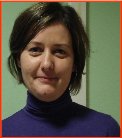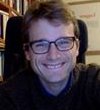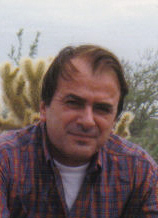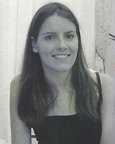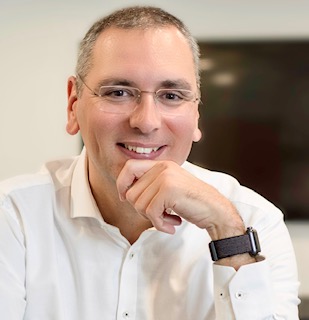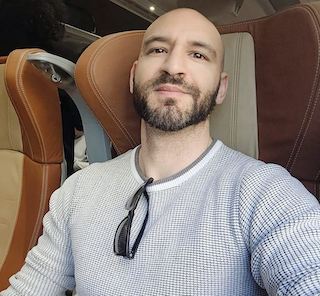Studying at the University of Verona
Here you can find information on the organisational aspects of the Programme, lecture timetables, learning activities and useful contact details for your time at the University, from enrolment to graduation.
Academic calendar
The academic calendar shows the deadlines and scheduled events that are relevant to students, teaching and technical-administrative staff of the University. Public holidays and University closures are also indicated. The academic year normally begins on 1 October each year and ends on 30 September of the following year.
Course calendar
The Academic Calendar sets out the degree programme lecture and exam timetables, as well as the relevant university closure dates..
| Period | From | To |
|---|---|---|
| Sem. 1A | Sep 27, 2021 | Nov 6, 2021 |
| Sem. 1B | Nov 15, 2021 | Jan 12, 2022 |
| Sem. 2A | Feb 14, 2022 | Mar 26, 2022 |
| Sem. 2B | Apr 4, 2022 | Jun 4, 2022 |
| Session | From | To |
|---|---|---|
| Sessione Invernale | Jan 10, 2022 | Feb 12, 2022 |
| Sessione estiva | Jun 6, 2022 | Jul 23, 2022 |
| Sessione autunnale | Aug 29, 2022 | Sep 24, 2022 |
| Session | From | To |
|---|---|---|
| Sessione estiva | Jul 11, 2022 | Jul 16, 2022 |
| Sessione autunnale | Nov 7, 2022 | Nov 12, 2022 |
| Period | From | To |
|---|---|---|
| FESTIVITA' OGNISSANTI | Nov 1, 2021 | Nov 1, 2021 |
| Vacanze di Natale | Dec 25, 2021 | Jan 6, 2022 |
| VACANZE DI PASQUA | Apr 15, 2022 | Apr 19, 2022 |
| Festa della Liberazione | Apr 25, 2022 | Apr 25, 2022 |
| FESTA DEL LAVORO | May 1, 2022 | May 1, 2022 |
| Festività Santo Patrono di Verona | May 21, 2022 | May 21, 2022 |
Exam calendar
Exam dates and rounds are managed by the relevant Humanistic Studies Teaching and Student Services Unit.
To view all the exam sessions available, please use the Exam dashboard on ESSE3.
If you forgot your login details or have problems logging in, please contact the relevant IT HelpDesk, or check the login details recovery web page.
Should you have any doubts or questions, please check the Enrollment FAQs
Academic staff
 roberto.dallachiara@univr.it
roberto.dallachiara@univr.it
 alberto.mattei@univr.it
alberto.mattei@univr.it
 elisabetta.neve@univr.it
elisabetta.neve@univr.it
 mauro.niero@univr.it
mauro.niero@univr.it
 marta.pantalone@univr.it
marta.pantalone@univr.it
Study Plan
The Study Plan includes all modules, teaching and learning activities that each student will need to undertake during their time at the University.
Please select your Study Plan based on your enrollment year.
1° Year
| Modules | Credits | TAF | SSD |
|---|
2° Year activated in the A.Y. 2022/2023
| Modules | Credits | TAF | SSD |
|---|
| Modules | Credits | TAF | SSD |
|---|
| Modules | Credits | TAF | SSD |
|---|
| Modules | Credits | TAF | SSD |
|---|
Legend | Type of training activity (TTA)
TAF (Type of Educational Activity) All courses and activities are classified into different types of educational activities, indicated by a letter.
Sociology of Social Innovation (2021/2022)
The teaching is organized as follows:
SOCIAL NETWORK ANALYSIS E INTERVENTO DI RETE
Credits
3
Period
See the unit page
Academic staff
See the unit page
MULTICULTURALISMO E TEORIE DEL RICONOSCIMENTO
Credits
3
Period
See the unit page
Academic staff
See the unit page
SOCIOLOGIA DEL TERZO SETTORE
Credits
3
Period
See the unit page
Academic staff
See the unit page
Learning outcomes
KNOWLEDGE AND UNDERSTANDING
- advanced theoretical and technical-methodological knowledge, with particular regard to the analysis and understanding of the social, welfare and health institutions
- multidisciplinary knowledge aimed at critical analysis of specific social problems
- multidisciplinary knowledge aimed at reflecting on the dynamics in which the service is located.
ABILITY TO APPLY KNOWLEDGE AND UNDERSTANDING
- ability to interpret the different situations of hardship and to promote the well-being of the community;
- reading and decision-making skills inherent to the problems of integration between social and health services;
- mastery in the use of data collection and information tools.
SPECIFIC OBJECTIVES The course aims to provide the conceptual elements necessary to develop an adequate sociological interpretation of emerging social dynamics (such as migratory processes and the emergence of Third sector organizations as actors in the integrated social work system). Students will develop skills of decision making concerning the issues of social integration between different social groups and between social and health services, public and Third sector. The module Sociology of the Third Sector will offer insights into the role that the third sector can play in the context of the welfare state crisis. The Multiculturalism and Recognition Theories module aims to transmit the knowledge for a critical analysis of migration and of the claim of cultural identities to highlight elements of similarity and differences with respect to the struggles for recognition. The Social Network Analysis and Network Intervention module presents concepts and tools for the analysis of social networks in their structural and symbolic dimensions. The conceptual elements introduced by the course will allow to realize innovative social intervention projects based on the network intervention and the design of third sector services.
Program
SOCIAL NETWORK ANALYSIS E INTERVENTO DI RETE
Lezione: In order to achieve the learning outcomes, the unit syllabus will be structured as follows: 1. What is a social network and how it can be identified. 2. The properties of the relationships. 3. The methodology of the network intervention. The program will be analytically presented during the lectures. All the topics in the syllabus can be found in the reference books.
Laboratorio: In order to achieve the learning outcomes, the unit syllabus will be structured as follows: 1. The properties of the nodes. 2. The properties of the networks. 3. Different ways of observing networks. 4. Some examples of research conducted through the social network analysis. The program will be analytically presented by means of laboratory activities. All the topics in the syllabus can be found in the reference books.
MULTICULTURALISMO E TEORIE DEL RICONOSCIMENTO
Lezione: In the context of the lectures (12 hours), the fundamental concepts, and related empirical repercussions, will be presented to introduce the new paradigm of the egalitarian difference. In particular, the following themes will be introduced: 1. the role of culture in the formation of individual and group identities: culture as a 'social fact' (holistic perspective) and culture as a social construction (the individualistic perspective); 2. struggles for recognition: redistribution and recognition. Two ways to tackle the problem of social inequality; 3. multiculturalism and multi-ethnicity: the regulation of inter-ethnic and multicultural coexistence; 4. Rights and human self-determination in a global world: citizenship as a social practice.
Laboratorio: Within the laboratory activities (12 hours) each student, starting from the concepts introduced in the lectures, will have to develop a work aimed at developing the ability to translate the concept, in its complexity, into social indicators. In empirically detectable dimensions. Before the workshop activities, the teacher will make available the work material. In view of the teaching type, frequency module is mandatory.
SOCIOLOGIA DEL TERZO SETTORE
The module will address the following topics:
• Review of the main theories of Third sector
• The relational specificity of Third sector
• Third sector and innovation in social policies
• The social worker in the third sector
• Third sector in Italy: laws, culture and practices
Teaching methods:
Lezioni: Lectures on theoretical contents
Laboratorio: a) presentation of significant experience of Third sector organizations; b) group work for the analysis of laws concerning the sector and public social services outsourcing
Bibliography
Examination Methods
Objectives of the assessment tests:
The assessment tests are aimed at verifying 1) the acquisition of the theoretical contents proposed by the program of the single modules and 2) the ability to decline these contents in the analysis of social policies, social services and social network intervention.
Assessment methods:
The individual modules can provide in-progress assessment tests.
However, a final assessment test, common to all modules, will be held in oral form.
For details on how to use the recommended texts, refer to the web pages of each individual module of the course.
Type D and Type F activities
I 9 crediti liberi a scelta dello studente (ambito “D”) hanno lo scopo di offrire allo studente la possibilità di personalizzare il proprio percorso formativo permettendo di approfondire uno o più argomenti di particolare interesse legati al proprio percorso accademico.
Per garantire questo fine, si invitano gli studenti a rispettare le seguenti indicazioni per il completamento di tale ambito:
- almeno un’attività formativa erogata come esame universitario (con relativo voto in trentesimi); si consigliano Neuropsichiatria infantile - MED39, Tutela dei diritti fondamentali - IUS/08, Sicurezza e previdenza sociale - IUS/07;
- massimo 6 cfu relativi a competenze linguistiche (oltre a quelli previsti dal PdS);
- massimo 6 cfu relativi a competenze informatiche (oltre a quelli previsti dal PdS);
- massimo 4 cfu di tirocinio, (oltre a quelli previsti dal PdS);
- massimo 6 cfu di attività laboratoriale/esercitazioni (compresi quelli previsti nei PdS per l’ambito) di regola viene riconosciuto 1 cfu ogni 25 ore di attività;
- massimo 6 cfu di attività seminariale/convegni/cicli di incontri/formative in genere (sia accreditata dal Dipartimento di Scienze Umane che extrauniversitaria) – di regola viene riconosciuto 1 cfu ogni 8 ore di partecipazione e/o 2 giornate salvo diversamente deliberato;
- non vengono valutate attività svolte in Erasmus non inserite nei Learning Agreement.
COMPETENZE TRASVERSALI
Scopri i percorsi formativi promossi dal Teaching and learning centre dell'Ateneo, destinati agli studenti iscritti ai corsi di laurea, volti alla promozione delle competenze trasversali:
https://talc.univr.it/it/competenze-trasversali
| years | Modules | TAF | Teacher |
|---|---|---|---|
| 1° 2° | What paradigms beyond the pandemic? | D |
Paola Dal Toso
(Coordinator)
|
| 1° 2° | The contagion and the cure. The world after the virus | D |
Carlo Chiurco
(Coordinator)
|
| 1° 2° | Summer School: Human Sciences and Society - (HSaS) | D |
Massimiliano Badino
(Coordinator)
|
| 1° 2° | The ethics and aesthetics of the image | D |
Gianluca Solla
(Coordinator)
|
| years | Modules | TAF | Teacher |
|---|---|---|---|
| 1° 2° | What paradigms beyond the pandemic? | D |
Paola Dal Toso
(Coordinator)
|
| 1° 2° | The contagion and the cure. The world after the virus | D |
Carlo Chiurco
(Coordinator)
|
| 1° 2° | Laboratorio “Calendario di Memoria Civile – Giornata della Memoria” | D |
Olivia Guaraldo
(Coordinator)
|
| years | Modules | TAF | Teacher |
|---|---|---|---|
| 1° 2° | Introduction to robotics for humanities students | D |
Paolo Fiorini
(Coordinator)
|
| years | Modules | TAF | Teacher | |
|---|---|---|---|---|
| 1° | Legal protection of fundamental rights | D |
Stefano Catalano
(Coordinator)
|
|
| 1° 2° | "Common world. 2022 Arendt Seminars | D |
Ilaria Possenti
(Coordinator)
|
|
| 1° 2° | Restorative Justice | D |
Cristina Lonardi
(Coordinator)
|
|
| 1° 2° | Group Psychology and the Analysis of the Ego, a hundred years later: social bond and new forms of subjectivation. | D |
Matteo Bonazzi
(Coordinator)
|
|
| 1° 2° | The contagion and the cure. The world after the virus | D |
Carlo Chiurco
(Coordinator)
|
|
| years | Modules | TAF | Teacher | |
|---|---|---|---|---|
| 1° | Child Neuropsychiatry | D |
Francesca Darra
(Coordinator)
|
|
| 1° 2° | "Common world. 2022 Arendt Seminars | D |
Ilaria Possenti
(Coordinator)
|
|
| 1° 2° | Partecipated justice and reforms. The settlement of conflicts with people and for people | D |
Cristina Lonardi
(Coordinator)
|
|
Career prospects
Module/Programme news
News for students
There you will find information, resources and services useful during your time at the University (Student’s exam record, your study plan on ESSE3, Distance Learning courses, university email account, office forms, administrative procedures, etc.). You can log into MyUnivr with your GIA login details: only in this way will you be able to receive notification of all the notices from your teachers and your secretariat via email and soon also via the Univr app.
Graduation
Documents
| Title | Info File |
|---|---|
|
|
pdf, it, 99 KB, 13/10/23 |
|
|
pdf, it, 101 KB, 10/04/24 |
List of theses and work experience proposals
| theses proposals | Research area |
|---|---|
| LGBTQ+ Social Psychology | Various topics |
Student mentoring
Gestione carriere
Linguistic training CLA
Practical information for students
Documents
| Title | Info File |
|---|---|
|
|
pdf, it, 325 KB, 02/05/23 |
|
|
pdf, it, 212 KB, 02/05/23 |
|
|
pdf, it, 131 KB, 02/05/23 |
Stage e Tirocini
Il Corso di Studi prevede un tirocinio obbligatorio, secondo le disposizioni e indicazioni che seguono.
1. Le attività di tirocinio degli studenti si svolgono presso strutture esterne, convenzionate con l’Università degli Studi di Verona ai sensi delle vigenti disposizioni in materia.
2. Nelle strutture esterne gli studenti svolgono le attività di tirocinio sotto la responsabilità di un assistente sociale (Tutor-supervisore), appartenente a dette strutture, coordinato a sua volta dal responsabile del tirocinio presso il Corso di Studio. In assenza di un assistente sociale, operante nella struttura esterna, il Collegio didattico, per quanto di competenza, decide, su proposta dei responsabili del tirocinio, in ordine alle condizioni per l’effettuazione o la prosecuzione delle attività di tirocinio degli studenti interessati.
3. Le attività di tirocinio sono obbligatorie per almeno 250 ore. Il Collegio didattico, in deroga alle disposizioni del presente articolo, può consentire a studenti che si trovino in particolari condizioni, in specie se disabili, lavoratori o impegnati in organismi collegiali dell’Università degli Studi di Verona, di non ottemperare in parte all’obbligo di frequenza alle attività di tirocinio, predisponendo forme alternative di tirocinio, anche tramite supporti telematici e multimediali interattivi.
4. I responsabili delle attività di tirocinio presso il Corso di Studio, anche avvalendosi di appositi collaboratori o tutori esterni, accertano la presenza degli studenti presso le rispettive strutture.
5. Al termine dell’attività di tirocinio, lo studente deve presentare una relazione scritta al responsabile di tale attività presso il Corso di Studio. Lo studente elabora la relazione scritta, controfirmata dal Tutor-supervisore. La relazione finale viene valutata dal responsabile del tirocinio presso il Corso di Studio e deve tenere conto degli obiettivi prefissati dal Collegio didattico.
La valutazione viene attribuita al tirocinio nel seguente modo: sufficiente = 0; buono = 1; ottimo = 2; eccellente = 3 e verrà aggiunta alla media dei voti del curriculum al momento della discussione della tesi.
6. Gli Uffici della Direzione Didattica e Servizi agli Studenti predispongono la documentazione necessaria allo svolgimento delle attività di tirocinio, comprese attestazioni e certificazioni.
7. Nel caso in cui lo studente partecipi al programma Erasmus le attività di tirocinio vengono regolamentate come segue:
A – Lo studente svolge il Tirocinio presso la sede Erasmus.
Se lo studente svolge il Tirocinio all’estero si ritiene “assolto” l’obbligo di frequenza al Laboratorio se:
- lo studente aggiorna il proprio docente/tutor con brevi relazioni mensili da inviare mezzo mail, sull’andamento del lavoro svolto presso la sede estera;
- produce una relazione finale completa del tirocinio svolto.
La valutazione finale del laboratorio di guida al tirocinio sarà effettuata da parte del tutor del laboratorio sulla base della relazione dello studente tenendo conto della eventuale valutazione da parte del supervisore estero.
B – Lo studente non svolge il Tirocinio presso la sede Erasmus
Se lo studente non svolge il Tirocinio nella sede Erasmus e lo deve fare al rientro:
- lo studente effettua uno/due incontri individuali iniziali con il docente/tutor in cui predisporre quanto necessita per l’avvio del tirocinio e nei quali verranno forniti materiali, griglie ed eventuali testi di riferimento;
- invia brevi relazioni mensili sull’andamento del tirocinio che sarà svolto in Italia al di fuori del periodo in cui si tiene normalmente il laboratorio di guida al tirocinio;
- produce la relazione finale completa del tirocinio svolto.
Il Corso di Studi prevede un laboratorio interdisciplinare come attività formativa trasversale (3 Cfu di tipo F), presente nell’elenco degli insegnamenti Il laboratorio, per regolamento, prevede la frequenza obbligatoria per almeno i due terzi del totale delle ore.
- Tutte le informazioni in merito agli stage per futuri studenti sono disponibili alla pagina Stage e tirocini.
- Tutte le informazioni in merito agli stage per studenti iscritti sono pubblicate in MyUnivr - come fare per - stage e tirocini.
- Tutte le informazioni in merito agli stage per le aziende sono disponili alla pagina Stage e tirocini per azienze.

 +39 045 802 8459
+39 045 802 8459










